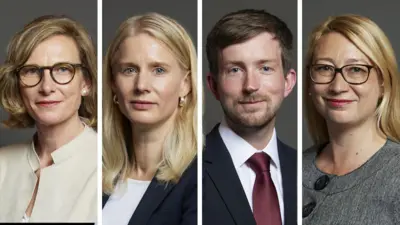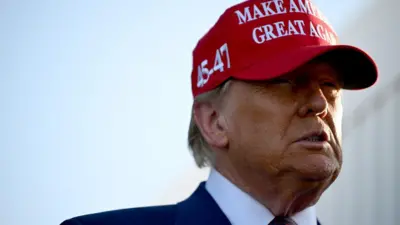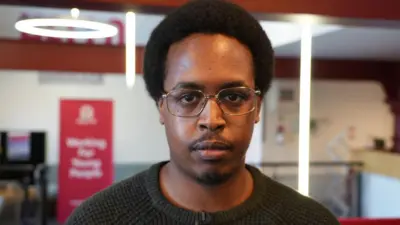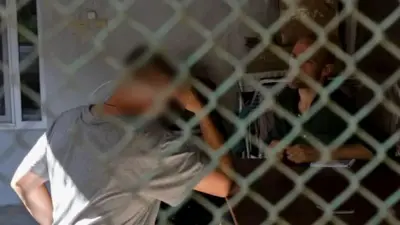We've updated our Privacy and Cookies Policy
We've made some important changes to our Privacy and Cookies Policy and we want you to know what this means for you and your data.
Nigeria Chibok abductions: Ex-President Jonathan denies rescue snub
Image source, AFP
Top Stories
Nigeria's former President Goodluck Jonathan has denied he rejected a British offer to rescue the Chibok girls abducted by Boko Haram.
The Royal Air Force (RAF) located the more than 200 girls and proposed to rescue them but Mr Jonathan refused, the UK's .
A spokesman for Mr Jonathan dismissed the paper's report as "lies".
The Chibok abduction sparked global outrage and led to one of the biggest social campaigns in recent years.
Top Stories
The Observer says the RAF conducted air reconnaissance over northern Nigeria for several months in 2014, as part of a mission named Operation Turus, following the kidnapping of the schoolgirls by the Islamist militant group.
The paper's report is based on claims made by an unnamed source which it says was involved with Operation Turus.
Mr Jonathan's spokesman, Ikechukwu Eze, said: "We can confidently say the lies in this report are self-evident."
He said that Mr Jonathan's administration had allowed neighbouring countries to help with the rescue attempt and let Western military conduct reconnaissance flight over the country's airspace.
Nigeria's Daily Trust newspaper quotes Mr Eze as saying that the reports were the result of people "playing politics with the issue of the Chibok girls".
The lack of progress against Boko Haram was among the issues that is considered to have cost Mr Jonathan his bid for re-election in 2015.
He was criticised for not doing enough to locate and rescue the girls - that led to the creation of the #BringBackOurGirls movement.
It rallied high-profile supporters including heads of state and celebrities to pressure the government into stepping up its efforts in the search for kidnapped schoolgirls.
Top Stories
Conflicting signals - Chris Ewokor, │╔╚╦┐ý╩Í Africa, Abuja
Image source, AFP
Soon after the girls were abducted, campaigners and members of the opposition took to the media and the streets to demand that the government do more to rescue them.
But immediately, there were conflicting signals from the government.
Officials said they were on top of the situation and were working to get the girls released but at the same time it was reported that the government doubted the story of the abduction altogether.
For many people in government, it was unthinkable that Boko Haram fighters could kidnap close to 300 school girls in one fell swoop.
They started to point accusing fingers at some members of the opposition, saying they masterminded the story to discredit the government.
It was only after the story gained international interest that the government started taking it seriously.
The head of the military at one point said they saw the girls but beyond that, nothing was done.
Some officials in government tried to convince the president there was need to work out a rescue plan.
But fear that it could put the lives of the girls in danger prevented the government from going ahead.
Instead, it decided to negotiate with the militants for the girls' release.
Top Stories
More to explore
Most read
Content is not available








